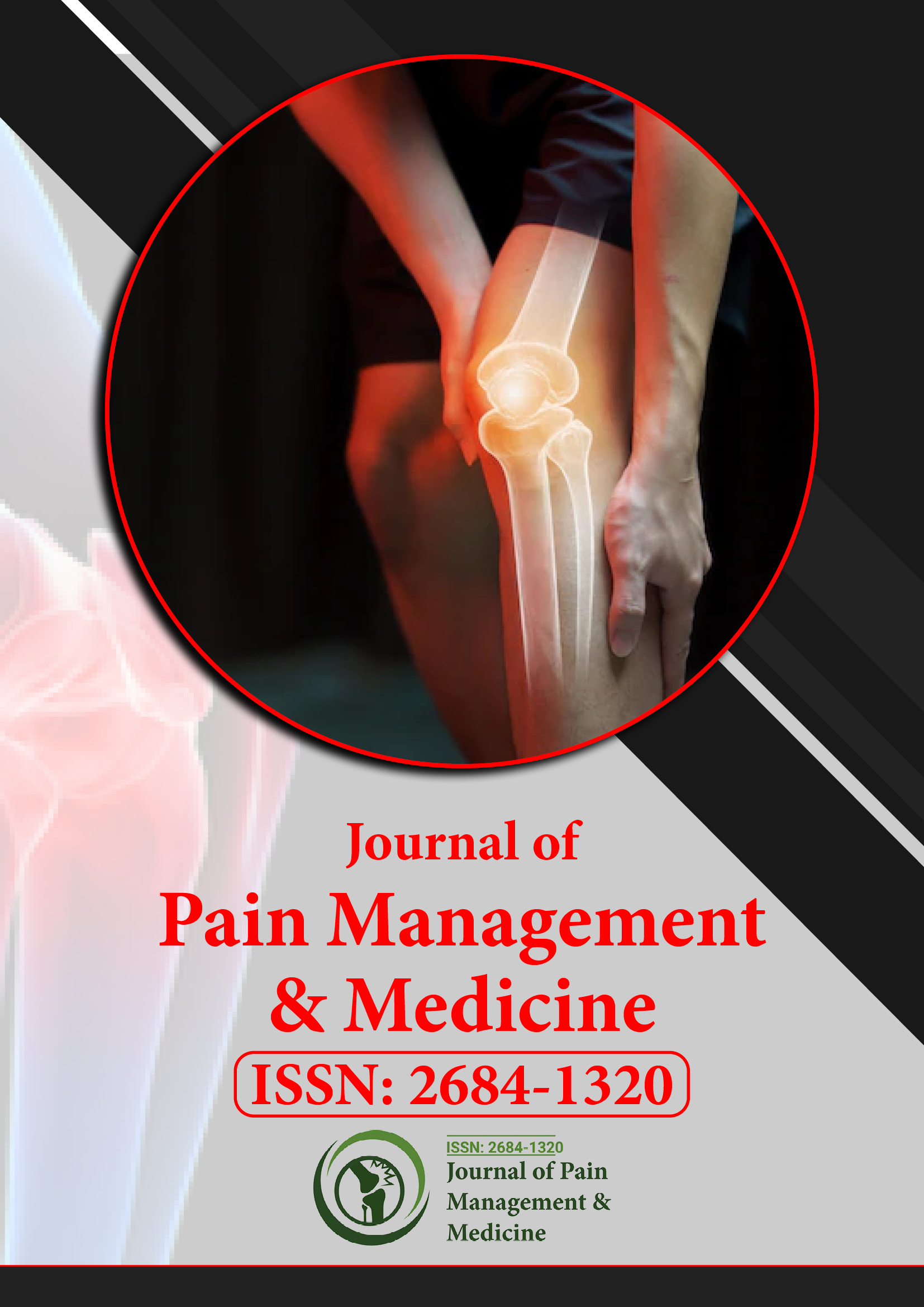ఇండెక్స్ చేయబడింది
- RefSeek
- హమ్దార్డ్ విశ్వవిద్యాలయం
- EBSCO AZ
- పబ్లోన్స్
- యూరో పబ్
- గూగుల్ స్కాలర్
- నాణ్యమైన ఓపెన్ యాక్సెస్ మార్కెట్
ఉపయోగకరమైన లింకులు
ఈ పేజీని భాగస్వామ్యం చేయండి
జర్నల్ ఫ్లైయర్

యాక్సెస్ జర్నల్స్ తెరవండి
- ఆహారం & పోషకాహారం
- ఇంజనీరింగ్
- ఇమ్యునాలజీ & మైక్రోబయాలజీ
- క్లినికల్ సైన్సెస్
- జనరల్ సైన్స్
- జెనెటిక్స్ & మాలిక్యులర్ బయాలజీ
- నర్సింగ్ & హెల్త్ కేర్
- న్యూరోసైన్స్ & సైకాలజీ
- పర్యావరణ శాస్త్రాలు
- ఫార్మాస్యూటికల్ సైన్సెస్
- బయోఇన్ఫర్మేటిక్స్ & సిస్టమ్స్ బయాలజీ
- బయోకెమిస్ట్రీ
- మెటీరియల్స్ సైన్స్
- మెడికల్ సైన్సెస్
- రసాయన శాస్త్రం
- వెటర్నరీ సైన్సెస్
- వ్యవసాయం మరియు ఆక్వాకల్చర్
- వ్యాపార నిర్వహణ
నైరూప్య
తుంటి నొప్పితో 45 నుండి 64 సంవత్సరాల వయస్సు గల మహిళల్లో మానసిక ఆరోగ్య స్థితి మరియు జీవిత సంతృప్తి: ప్రాథమిక ఫలితాలు
మరియా డో కార్మో కొరియా డి లిమా, రూబెన్స్ ఎ. డా సిల్వా, ప్రిస్కిలా బ్యూప్రే, టామీ చెవ్రెట్
నేపధ్యం: తుంటి నొప్పి శారీరక పనితీరు మరియు రోజువారీ జీవన కార్యకలాపాల కోసం చలనశీలతను తగ్గించడానికి దోహదం చేస్తుంది, ముఖ్యంగా వృద్ధాప్య ప్రక్రియలో ఉన్న మహిళల్లో. తుంటి నొప్పితో బాధపడుతున్న వ్యక్తులు కూడా మానసిక క్షోభకు గురవుతారు, ఇది పనితీరు మరియు జీవన నాణ్యత లేదా జీవితంలో సంతృప్తిని ప్రతికూలంగా ప్రభావితం చేస్తుంది.
లక్ష్యం: తుంటి నొప్పి యొక్క వివిధ తీవ్రతలతో 45 నుండి 64 సంవత్సరాల వయస్సు గల స్త్రీలలో దిగువ అవయవాల పనితీరు, మానసిక క్షోభ మరియు జీవిత సంతృప్తిని అంచనా వేయడం.
పద్ధతులు: క్రాస్-సెక్షనల్ అధ్యయనం నుండి, 45 నుండి 64 సంవత్సరాల వయస్సు గల ఇరవై ఒక్క (21) మహిళలు స్వచ్ఛందంగా నియమించబడ్డారు మరియు దీని ద్వారా అంచనా వేయబడ్డారు: సోషియోడెమోగ్రాఫిక్ డేటా, లెక్వెస్నే పెయిన్ ఇండెక్స్, లోయర్ ఎక్స్ట్రీమిటీ ఫంక్షనల్ స్కేల్ (LEFS), సైకలాజికల్ వంటి క్లినికల్ మరియు ధృవీకరించబడిన ప్రశ్నాపత్రాలు బాధ మరియు జీవిత సంతృప్తి. లెక్వెస్నే పెయిన్ ఇండెక్స్ (PI): తక్కువ-PI (స్కోరు ≤ 9; n=14) మరియు తదుపరి విశ్లేషణల కోసం స్ట్రాంగ్-PI (స్కోరు ≥ 10; n=7) ఉపయోగించి మహిళలను 2 గ్రూపులుగా వర్గీకరించారు.
ఫలితాలు: తక్కువ-PI (ప్రభావ పరిమాణం; g=2.59)తో పోలిస్తే బలమైన-PI సమూహం ముఖ్యమైన (p<0.001) తక్కువ-అవయవ కార్యాచరణను (LEFS) నివేదించింది. మానసిక క్షోభ మరియు జీవిత సంతృప్తి కోసం సమూహాల మధ్య గణనీయమైన తేడా కనిపించలేదు.
ముగింపు: తుంటి నొప్పి (బలమైన-PI) తక్కువ అవయవాల పనితీరు యొక్క అవగాహనను ప్రభావితం చేసినప్పటికీ, ఇది 45 నుండి 64 సంవత్సరాల వయస్సు గల మహిళల్లో మానసిక బాధ లేదా జీవిత సంతృప్తితో సంబంధం కలిగి ఉండదు.